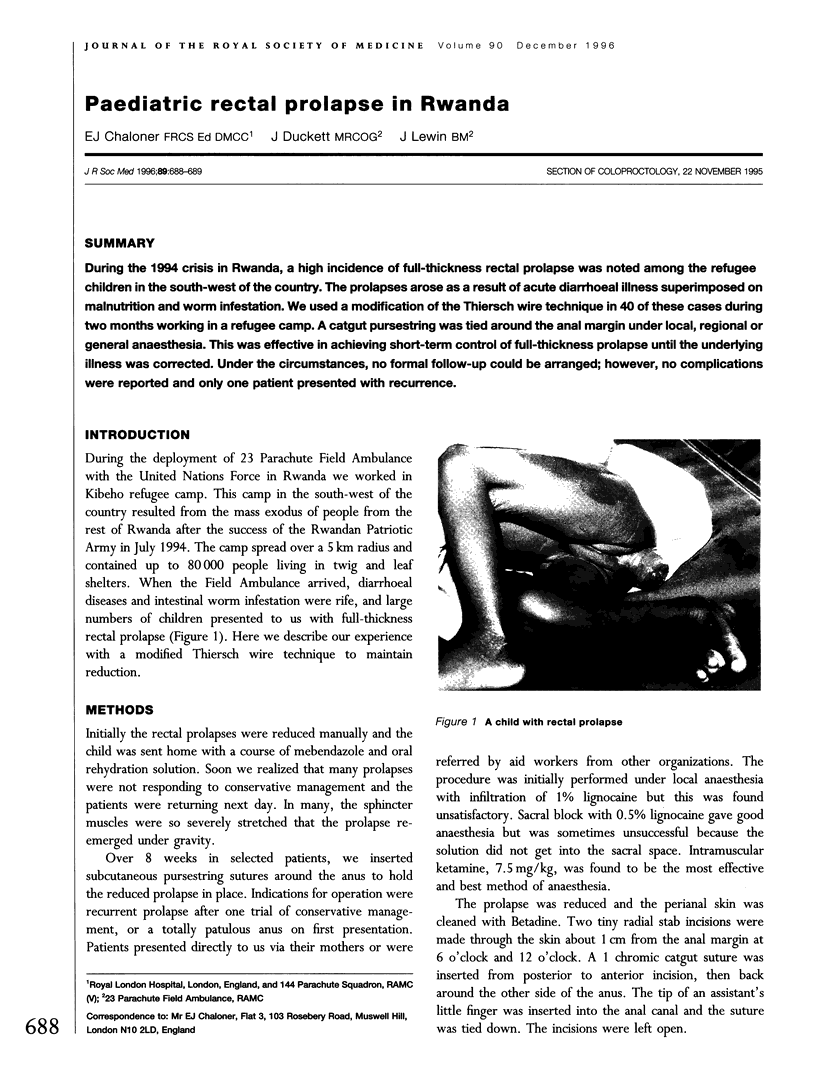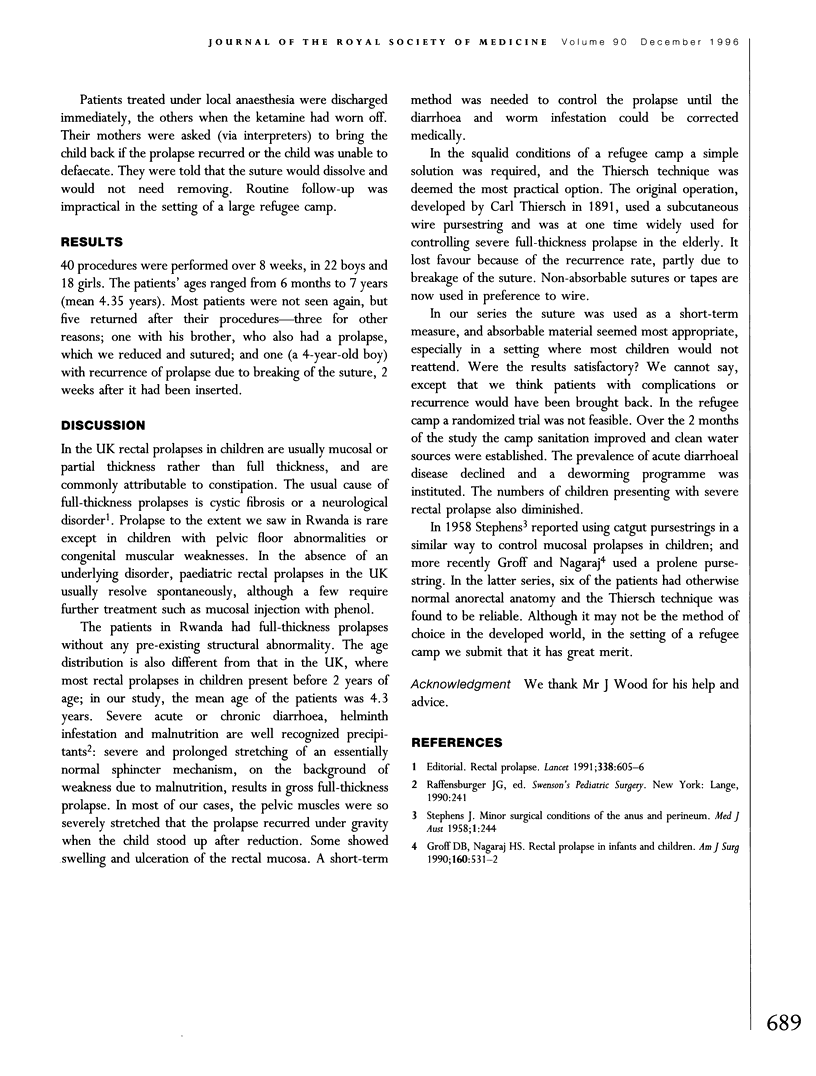Abstract
During the 1994 crisis in Rwanda, a high incidence of full-thickness rectal prolapse was noted among the refugee children in the south-west of the country. The prolapses arose as a result of acute diarrhoeal illness superimposed on malnutrition and worm infestation. We used a modification of the Thiersch wire technique in 40 of these cases during two months working in a refugee camp. A catgut pursestring was tied around the anal margin under local, regional or general anaesthesia. This was effective in achieving short-term control of full-thickness prolapse until the underlying illness was corrected. Under the circumstances, no formal follow-up could be arranged; however, no complications were reported and only one patient presented with recurrence.
Full text
PDF

Images in this article
Selected References
These references are in PubMed. This may not be the complete list of references from this article.
- Groff D. B., Nagaraj H. S. Rectal prolapse in infants and children. Am J Surg. 1990 Nov;160(5):531–532. doi: 10.1016/s0002-9610(05)81022-0. [DOI] [PubMed] [Google Scholar]
- STEPHENS F. D. Minor surgical conditions of the anus and perineum. Med J Aust. 1958 Feb 22;45(8):244–246. doi: 10.5694/j.1326-5377.1958.tb86227.x. [DOI] [PubMed] [Google Scholar]



